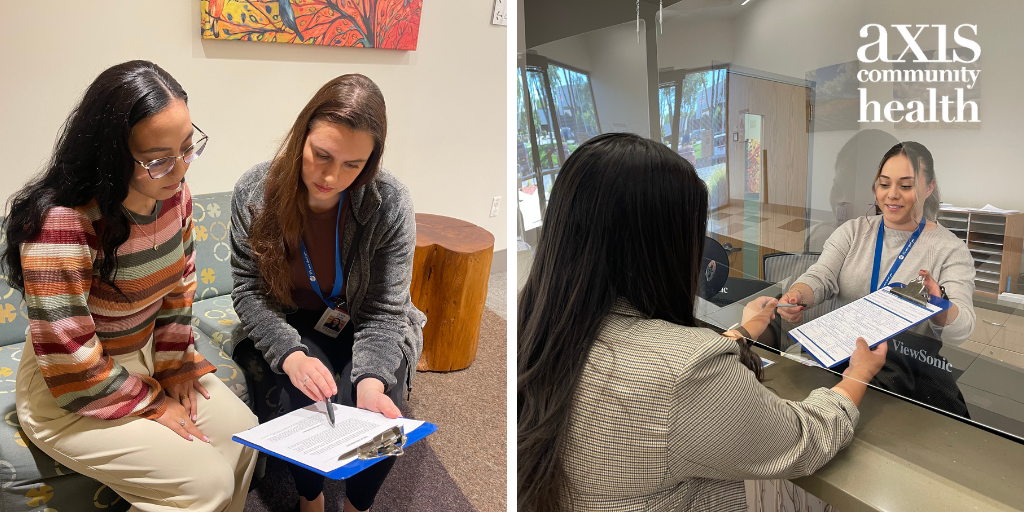Cuts to Medicaid Will Jeopardize Healthcare for Millions!
In California alone, over 15 million children, seniors, people with disabilities, and low-income workers rely on Medi-Cal (California’s Medicaid program). To gut this essential program is to abandon patients, like the ones served by our community health centers, who rely on it for survival.
We recently had a chance to chat with Hellen Vasquez, Community Engagement Manager at our member health center, Axis Community Health to get her perspective on why Medi-Cal is not just a healthcare program – it is a lifeline that helps ensure equity in access to essential health services.
Name: Hellen Vasquez
Title: Community Engagement Manager, Axis Community Health

Alameda Health Consortium: In your own words, why is Medicaid (Medi-Cal) important to California residents?
Hellen Vasquez: Medi-Cal plays a critical role in the health and well-being of millions of California residents, particularly among vulnerable populations who often face multiple socioeconomic challenges. For many low-income individuals and families, access to Medi-Cal coverage is the determining factor in whether they seek timely and essential medical care. These populations frequently struggle to meet basic needs, such as housing, food, and transportation, making it difficult to prioritize healthcare without financial assistance. Medi-Cal not only enables them to access primary care services but also provides vital healthcare essentials, including medications, preventive care, and ongoing treatment for chronic conditions. Without this support, many would be forced to pick and choose necessary medical attention due to cost, putting their health at serious risk because even though sliding scale options may be available, it would still add an additional expense not previously accounted for in their family budget. In this way, Medi-Cal is not just a healthcare program—it is a lifeline that helps ensure equity in access to essential health services across the state.
Medi-Cal plays a pivotal role in mitigating health disparities …
AHC: Does Medi-Cal impact public health outcomes in underserved communities? How so?
HV: Medi-Cal makes a profound impact on public health outcomes by increasing access to quality preventative care services which assist in early detection and prevention of chronic diseases. By offering accessible and affordable preventive care, including specialized services, Medi-Cal reduces unnecessary emergency room visits and enables timely interventions before conditions escalate into acute health crises. Along the same lines it fortifies a healthier future for families as it’s able to facilitate access to not only vital healthcare needs but also linking families to supplemental programs that may benefit their overall health addressing the social determinants of health that are otherwise deterring their ability for true wellbeing. In doing so, Medi-Cal not only improves individual health but also contributes to the overall health and well-being of entire communities in need, creating a more equitable and effective healthcare system.
AHC: In what ways do you think Medi-Cal can help reduce health disparities?
HV: Medi-Cal plays a pivotal role in mitigating health disparities by significantly enhancing the quality of life for individuals facing economic, social, or systemic barriers to healthcare access. By providing comprehensive coverage for a range of medical services and medications that would otherwise be financially out of reach, Medi-Cal facilitates equitable access to necessary care. This program proactively addresses gaps in healthcare access, particularly for vulnerable populations, including low-income individuals, racial and ethnic minorities, and those living in underserved areas. By providing access to vital services that may even be more prominent in these underserved areas; for example, diabetes, hypertension, mental health, substance use disorders, cardiovascular disease, and oral health issues, including gum disease. For individuals in these communities, Medi-Cal makes critical care and treatment accessible, turning healthcare from a luxury into a practical and attainable necessity. Through its inclusive framework, Medi-Cal fosters a more equitable healthcare environment, ultimately promoting improved health outcomes for diverse populations across the state.
The potential loss or reduction of Medi-Cal coverage would have devastating consequences …
AHC: Can you share an example of how Medi-Cal has significantly changed a patient’s life?
HV: As a Community Engagement Manager, I truly get to see the impact it makes for patients to go from point A; not having coverage or access to care, to point B; Being enrolled in healthcare coverage and receiving care through our clinic network. There are 2 cases which have really impacted me and have shown the value of walking patients through health navigation. The first case was for an unhoused undocumented male that had been living in his vehicle for years, to the point that he developed chronic health issues pertaining to sleeping in a seated, tilted and crouched position for a prolonged period. He also has underlying heart issues that were greatly influenced by his environment and at the time no access to care. I met him at a health fair and began to help explain coverage and how the 2024 Medi-Cal expansion could now allow him to more than just ER visits when his condition caused so much aggravation. Shortly after, our enrollment team assisted with his Medi-Cal application, and I assisted him with appointments. To now a year later he has thanked me because he now can receive care and medications for his Diabetes, Hypertension, and coronary artery disease as well as chiropractic and mental health care. I feel very fortunate to see how his whole well-being has changed from just knowing he could now be eligible for Medi-Cal. The second case is of another male, elderly, living in a refuge and he was blind. Being unhoused, blindness already posed so many challenges for him, that despite him having a family history of chronic illnesses he wanted to enroll in coverage and address his eyesight first. I assisted with coverage and appointments with our doctors. He was then able to receive primary care at Axis, and referrals to a retina specialist as well as an ophthalmologist which eventually conducted his eye surgery, and he can now see again. He is very excited to have been able to regain his eyesight and with that his independence to continue to advocate for his health care.
AHC: What are the real-life consequences of Medi-Cal being cut?
HV: The potential loss or reduction of Medi-Cal coverage would have devastating consequences for California’s most vulnerable populations, particularly in areas of care that are often overlooked yet essential to overall health—mental health, dental, and optometry services. Medi-Cal currently serves as a critical safety net, providing access to comprehensive care that many low-income individuals and families would otherwise be unable to afford. Without this coverage, individuals would be forced to make impossible decisions, such as prioritizing life-sustaining treatments like insulin for diabetes over mental health counseling, dental procedures, or vision care. This selective access to care leads to mere survival rather than true health, as physical and mental health are deeply interconnected. For example, unmanaged dental issues can lead to infections and chronic pain, while untreated vision problems can impair a person’s ability to work or care for themselves. Mental health services are equally vital, particularly for populations under chronic stress. Furthermore, in many counties, alternative services are limited or only available on a sliding scale, which may still be financially inaccessible. For many, losing Medi-Cal would not simply mean reduced care—it would mean no care at all in certain domains, exacerbating health disparities and undermining the state’s public health infrastructure.
